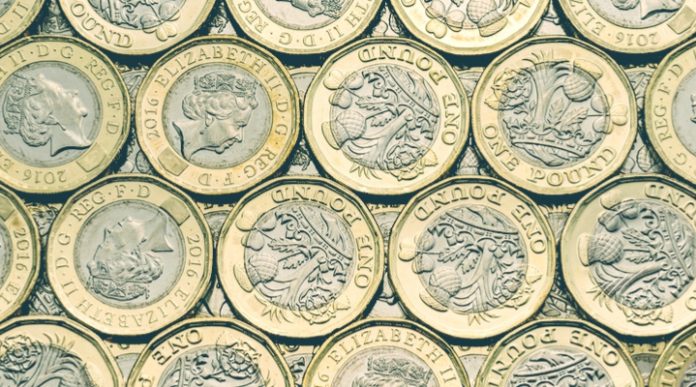The pound euro exchange rate traded within a very narrow range in the previous session. With no fresh data or headlines to drive either currency, the pair remained close to its opening price of €1.1284.
| What do these figures mean? |
|---|
|
When measuring the value of a pair of currencies, one set equals 1 unit and the other shows the current equivalent. As the market moves, the amount will vary from minute to minute. For example, it could be written: 1 GBP = 1.13990 EUR Here, £1 is equivalent to approximately €1.14. This specifically measures the pound’s worth against the euro. If the euro amount increases in this pairing, it’s positive for the pound. Or, if you were looking at it the other way around: 1 EUR = 0.87271 GBP In this example, €1 is equivalent to approximately £0.87. This measures the euro’s worth versus the British pound. If the sterling number gets larger, it’s good news for the euro. |
The pound was heavily out of favour at the end of last week as Brexit fears weighed on sentiment. EU Chief negotiator Michel Barnier cast doubts over whether there would be a post Brexit transition period at all. No transition period is the worst outcome for U.K. businesses and therefore the U.K. economy and the pound.
| Why is a “soft” Brexit better for sterling than a “hard” Brexit? |
|---|
| A soft Brexit implies anything less than UK’s complete withdrawal from the EU. For example, it could mean the UK retains some form of membership to the European Union single market in exchange for some free movement of people, i.e. immigration. This is considered more positive than a “hard” Brexit, which is a full severance from the EU. The reason “soft” is considered more pound-friendly is because the economic impact would be lower. If there is less negative impact on the economy, foreign investors will continue to invest in the UK. As investment requires local currency, this increased demand for the pound then boosts its value. |
This week U.K. Prime Minister Theresa May is due to make an announcement over the relationship the UK are looking to have with the EU post Brexit, which could create some volatility for the pound.
Today economic data will be in focus as investors look towards U.K. inflation data in the form of Consumer Price Index (CPI). Analysts are forecasting that headline inflation number to tick down in January to 2.9% year on year, from 3% in December. However, core inflation, which excludes more volatile items such as food and fuel is expected to increase from 2.5% to 2.6%. The Bank of England has already said that it may need to hike interest rates sooner and by more than it had it initially planned. Should inflation data show prices rising quicker than analysts anticipate, the pound could rally as investor expectations for a rate hike in May could increase.
| Why do raised interest rates boost a currency’s value? |
|---|
| Interest rates are key to understanding exchange rate movements. Those who have large sums of money to invest want the highest return on their investments. Higher interest rate environments tend to offer higher yields. So, if the interest rate or at least the interest rate expectation of a country is relatively higher compared to another, then it attracts more foreign capital investment. Large corporations and investors need local currency to invest. More local currency used then boosts the demand of that currency, pushing the value higher. |
German Political Concessions Kept Euro Weak
Market participants were also displaying a cautious mood towards the euro in the previous session. With little in the way of economic data investors were looking at political developments in Germany. The political vacuum which Germany has experienced since elections over 4 months ago, shows signs of abating. However, the cost to Angela Merkel and her Christian Democrat’s (CD) has been great, including the handing over of the finance ministry to the Social democrats as part of the deal for a grand coalition.
Today is once again very quiet on the eurozone economic calendar. Investors will need to wait until Wednesday for volatility. Wednesday sees the release of eurozone economic growth data and inflation data which could have a bearing upon the value of euro.
|
This article was initially published on TransferWise.com from the same author. The content at Currency Live is the sole opinion of the authors and in no way reflects the views of TransferWise Inc. |





